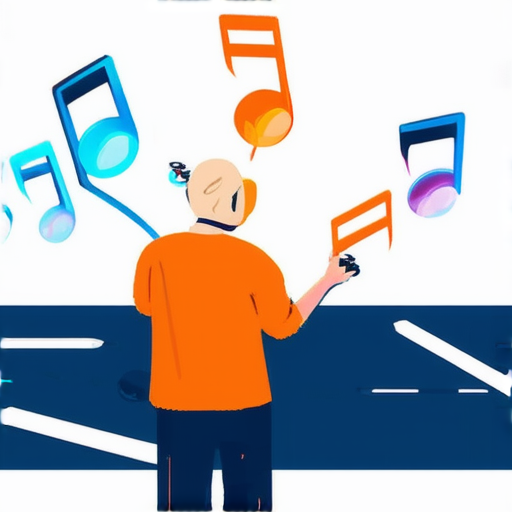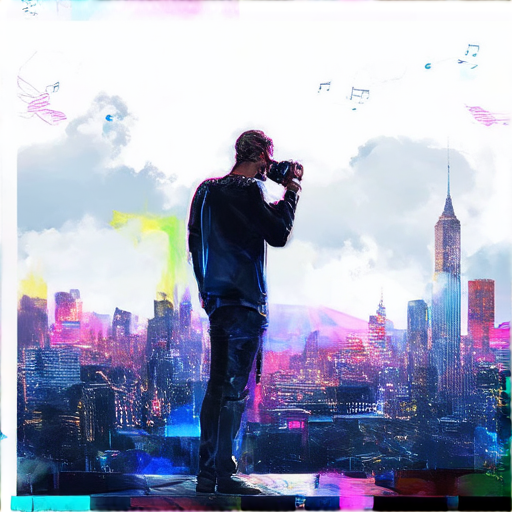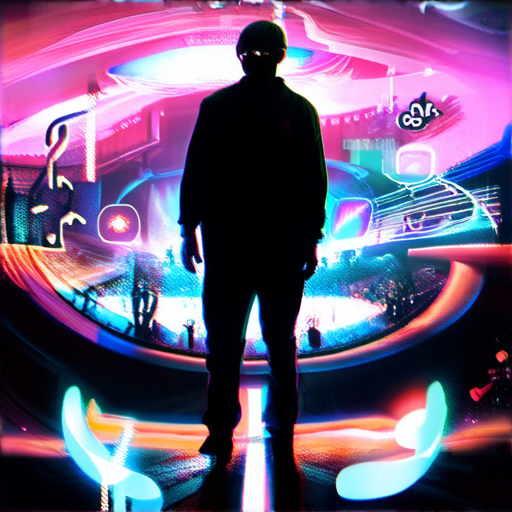As a musician, navigating the ever-changing landscape of social media can seem daunting, but it’s an essential tool for promoting your music and connecting with fans worldwide. With millions of users across various platforms, social media offers a vast opportunity to showcase your artistry, build a loyal following, and drive traffic to your music. In today’s digital age, understanding how to effectively promote music on social media is crucial for independent artists looking to break into the industry. From leveraging popular platforms like TikTok and Instagram to creating captivating content and engaging with your audience, we’ll delve into the world of music promotion on social media, providing you with actionable tips and expert advice to help you succeed.
Whether you’re just starting out or looking to take your music career to the next level, this comprehensive guide will cover everything from choosing the right social media platforms for your music to measuring your performance and engagement. By the end of this article, you’ll have a solid understanding of how to harness the power of social media to promote your music, reach new audiences, and achieve your goals as a musician.

Music Promotion Strategies on Social Media
Effective music promotion on social media involves leveraging various tactics to increase visibility, engagement, and reach.
- Hashtag Research and Utilization: Conduct thorough research to identify relevant and popular hashtags in your genre or niche. Use tools like Hashtagify or RiteTag to find trending hashtags. Incorporate these into your posts to increase discoverability.
- Content Calendar Planning: Develop a content calendar to organize and schedule posts in advance. Include a mix of promotional, educational, and entertaining content to cater to diverse audience preferences.
- Engage with Your Audience: Respond promptly to comments, messages, and reviews. Encourage fan interaction through contests, giveaways, or Q&A sessions to foster loyalty and word-of-mouth promotion.
- Collaborate with Influencers and Other Artists: Partner with influencers, bloggers, or fellow musicians to expand your reach. Collaborative content can help tap into new audiences and create fresh perspectives.
- Visual Content Creation: Produce high-quality visual content, such as videos, images, or live streams, to showcase your artistry and connect with fans on a deeper level.
- Paid Advertising Options: Explore paid advertising options like Facebook Ads, Instagram Ads, or Spotify Ad Studio to amplify your message and target specific demographics.
- Optimize Your Profile and Bio: Ensure your social media profiles are complete, up-to-date, and optimized for search engines. Use keywords from your music and bio to improve visibility in search results.
Key Performance Indicators (KPIs) for Music Promotion on Social Media
Track the following KPIs to measure the success of your music promotion efforts:
- Reach and Impressions: Monitor the number of users who viewed your content and the total number of times your content was displayed.
- Engagement Rate: Calculate the percentage of users who interacted with your content, such as likes, comments, shares, or saves.
- Website Traffic and Sales: Track the number of visitors who visited your website or made purchases after clicking on your social media ads.
Best Practices for Music Promotion on Social Media
Adhere to the following best practices to maximize your music promotion efforts:
- Be Authentic and Consistent: Share your unique voice, style, and personality across all platforms to build a loyal fan base.
- Post Regularly: Maintain a consistent posting schedule to keep your audience engaged and interested in your content.
- Use High-Quality Visuals: Invest in professional photography, videography, or graphics to elevate your brand and content.
Best Social Media Platforms for Music Promotion
As a music artist, effectively utilizing social media can significantly boost your online presence, increase engagement, and drive sales.
- Facebook: With over 2.7 billion monthly active users, Facebook remains one of the most popular social media platforms for music promotion. Create a business page, share updates about upcoming shows, releases, and behind-the-scenes content, and engage with fans through comments and direct messages.
- Instagram: As a visually-driven platform, Instagram is ideal for sharing high-quality images and videos of your music, performances, and personal life. Utilize hashtags, collaborate with influencers, and leverage Instagram Stories and Reels to reach a wider audience.
- TikTok: TikTok has become a significant platform for emerging artists, offering a vast user base and creative freedom. Share short-form videos showcasing your music, dance, or artistic talents, and participate in challenges and duets to gain popularity.
- Twitter: Twitter is perfect for real-time engagement, allowing you to connect with fans, share updates, and respond to comments and messages. Use relevant hashtags and tag influencers to increase visibility.
- YouTube: As the largest video-sharing platform, YouTube offers immense opportunities for music promotion. Upload official music videos, vlogs, and live performances to build your brand and attract new listeners.
- Spotify: Leverage Spotify’s massive user base and promotional tools, such as Spotify for Artists, to increase your song’s visibility, engage with fans, and track your analytics.
When choosing the best social media platform for your music promotion strategy, consider your target audience, content style, and resources. Experiment with different platforms, analyze your results, and adjust your approach accordingly to maximize your online presence and success.

Posting Music on Social Media: A Comprehensive Guide
- Step 1: Choose Your Social Media Platforms
- Step 2: Create Engaging Content
- Step 3: Upload Your Music
- Step 4: Optimize Your Posts
- Step 5: Leverage User-Generated Content
- Step 6: Monitor and Analyze Performance
Select the platforms you want to share your music on, considering factors like audience size, engagement, and genre-specific communities.
Develop a unique brand identity through high-quality visuals, concise bio descriptions, and captivating cover art.
Use the platform’s built-in features or third-party tools to upload your music files, ensuring compatibility with each platform’s requirements.
Utilize relevant hashtags, tag influencers or fans, and include eye-catching thumbnails to increase visibility and engagement.
Encourage fans to share their own music-related content featuring your work, fostering a sense of community and promoting organic growth.
Track your posts’ performance using analytics tools, adjusting your strategy based on engagement rates, reach, and audience feedback.
Platform-Specific Tips
- Instagram: Utilize Instagram Stories and Reels to share behind-the-scenes content, sneak peeks, and exclusive deals.
- Twitter: Share bite-sized updates, engage with followers, and participate in relevant conversations to build your online presence.
- Facebook: Create a dedicated music page, utilize Facebook Groups, and run targeted ads to reach a broader audience.
Additional Strategies
- Collaborate with Influencers: Partner with social media influencers in your niche to tap into their existing fanbase and expand your reach.
- Run Contests and Giveaways: Host contests, giveaways, or Q&A sessions to encourage user-generated content and drive engagement.
- Utilize Paid Advertising: Consider running paid ads on platforms like Facebook, Instagram, or YouTube to amplify your reach and drive traffic to your music.

Building a Strong Online Presence as a Musician
Establishing a strong online presence is crucial for musicians looking to promote themselves and grow their fanbase.
Define Your Target Audience
- Identify your ideal audience based on age, genre, location, and interests.
- Analyze their online behavior, preferences, and pain points.
- Create buyer personas to guide your social media strategy.
Choose the Right Social Media Platforms
- Facebook: ideal for building a community and sharing behind-the-scenes content.
- Instagram: perfect for visual storytelling and showcasing your music.
- Twitter: great for real-time engagement and sharing updates.
- YouTube: essential for video content and music promotion.
Develop a Content Strategy
- Share high-quality, engaging content that showcases your music and personality.
- Use a mix of promotional, educational, and entertaining content.
- Post consistently to maintain a strong online presence.
Engage with Your Audience
- Respond promptly to comments and messages on all platforms.
- Use social listening to stay up-to-date with industry trends and conversations.
- Collaborate with other artists, influencers, and fans to expand your reach.
Optimize Your Profiles
- Complete your profiles with accurate and up-to-date information.
- Use keywords relevant to your music and genre.
- Add high-quality profile pictures and banners.
Run Social Media Ads
- Determine your budget and ad goals.
- Target specific audiences based on demographics, interests, and behaviors.
- Track and optimize your ads for better performance.
Leverage User-Generated Content
- Incentivize fans to share their own content featuring you.
- Repost and showcase user-generated content on your profiles.
- Give credit to the original creators.
Monitor and Measure Performance
- Track your analytics across all platforms.
- Use metrics such as engagement rates, follower growth, and website traffic.
- Adjust your strategy based on your performance data.
How Do Artists Promote Themselves on Social Media?
- Choose Relevant Platforms: Select social media platforms that align with your target audience and art style. For example, Instagram is ideal for visual artists, while Twitter may suit writers or poets.
- Develop a Consistent Brand Identity: Use consistent branding across all social media platforms, including profile pictures, bio descriptions, and color schemes.
- Create Engaging Content: Share high-quality images or videos of your artwork, provide behind-the-scenes glimpses into your creative process, and offer exclusive promotions or discounts.
- Utilize Hashtags Strategically: Research and utilize relevant hashtags to increase discoverability and reach a broader audience.
- Engage with Followers and Other Artists: Respond to comments and messages promptly, participate in online communities related to your art genre, and collaborate with fellow artists to expand your network.
- Run Social Media Ads: Consider running targeted ads to increase visibility, drive website traffic, and generate sales.
- Monitor Analytics and Adjust Strategy: Track your social media performance using analytics tools and adjust your strategy accordingly to optimize engagement and growth.
- Share User-Generated Content: Encourage fans to share photos or reviews of your artwork, and re-share them on your social media channels to foster a sense of community.
- Leverage Influencer Marketing: Partner with influencers in your niche to showcase your artwork to their followers and tap into their credibility.
By implementing these strategies, artists can effectively promote themselves on social media, build a loyal following, and establish a strong online presence that drives success in their careers.

Boost Your Gig Promotion on Social Media
Effective promotion of gigs on social media requires strategic planning, creativity, and consistency.
- Define Your Target Audience: Identify the demographics, interests, and behaviors of your ideal clients to tailor your promotional approach.
- Optimize Your Profile: Complete your social media profiles with a professional profile picture, cover photo, and bio that highlights your services and expertise.
- Post Engaging Content: Share high-quality visuals, videos, or stories that showcase your skills, share client testimonials, or provide valuable tips related to your niche.
- Leverage Relevant Hashtags: Research and utilize popular hashtags in your industry to increase visibility and reach a broader audience.
- Collaborate with Influencers: Partner with influencers or other freelancers in your network to expand your reach and build credibility.
- Run Social Media Ads: Utilize targeted ads on platforms like Facebook, Instagram, or LinkedIn to reach potential clients and drive traffic to your gig page.
- Share User-Generated Content: Encourage satisfied clients to share their experiences working with you, and re-share them on your social media channels.
- Utilize Instagram Stories and IGTV: Share behind-the-scenes content, sneak peeks, or exclusive deals to keep your audience engaged.
- Monitor and Measure Performance: Track your social media analytics to understand what works and what doesn’t, and adjust your strategy accordingly.
0 Comments